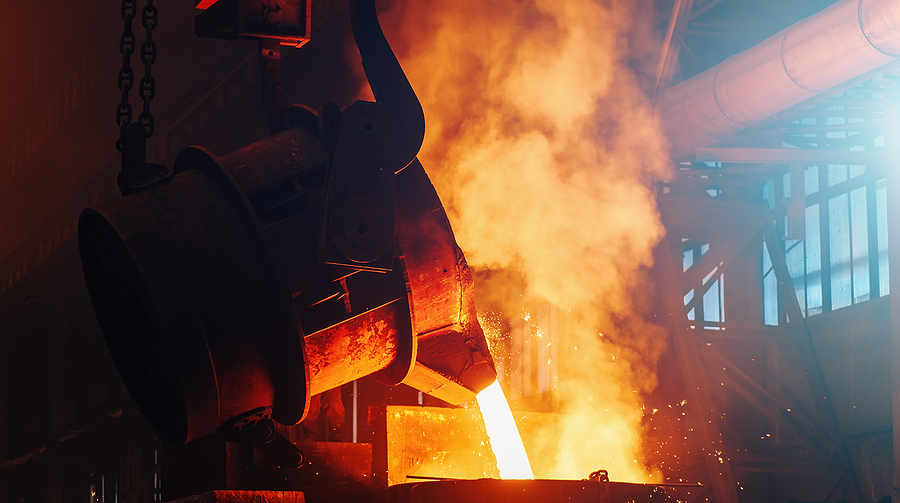
EMR Forms Partnership
As part of its commitment to decarbonization, EMR Ltd., based in the United Kingdom, has been testing out different scrap blends at a local steel mill.
The company’s July blog post provided a glimpse into its new RECTIFI project, which is designed to foster a collaboration between the steel, cement, and recycling industries. Financial support for the project will come from the U.K.’s Research and Innovation Transforming Foundation Industries Challenge.
“In preliminary trials with Tata Steel, our teams have demonstrated how new grades of recycled steel can be delivered with the chemistry performance required for high-quality, low-carbon steelmaking, lowering the demand for virgin iron ore,” said Roger Morton, the director for technology and innovation at EMR.
EMR has partnered with the steelmaker to create innovative recycled green steel grades that have the chemical equivalent to the end product. The firm has also joined forces with U.K.-based Darlow Lloyd & Sons, a company specializing in steel and aggregate recycling.
“Our work with Darlow Lloyd & Sons … is helping to develop a new mineral-rich alternative raw material for cement,” Morton remarks. He also highlights that the company, Aggregate Industries, is examining the material’s feasibility for use in its U.K. concrete kilns.
As an added bonus, the auto shredder residue (ASR) collected by EMR will be used as a reliable source for the cement-making industry as “a sustainable raw material, reducing the need for carbon-intensive and ecologically damaging mining processes.”
Additional Endeavors
EMR is further advancing its operations with the development of a recycled steel upgrade line, and a recycled mineral blending plant, both groundbreaking for the U.K. By utilizing artificial intelligence and advanced sorting technology, these projects will stand as unique additions to melt shop blending and cement kiln feedstock, the company states.
Also, as part of EMR and RECTIFI’s mission to lessen the U.K.’s environmental impact, they’ve “taken together, the potential reduction in carbon emissions and increased efficiency associated with the RECTIFI project will save more than $568 million per year in carbon credits and materials costs,” EMR explains.
According to the firm, industries that manufacture basic materials such as steel and cement act as a strong base for much of Britain’s manufacturing and construction activities, as well as those in other developed countries like America. These sectors are described as “foundation industries” due to their crucial role in sustaining these economies.
However, a study conducted by the Global Efficiency Intelligence based in Florida discovered that the steel and cement industries are responsible for a significant proportion of global carbon emissions. The research revealed that these sectors contribute “11 percent and 7 percent, respectively,” of all carbon emissions worldwide.
A Focus on Reducing Emissions
EMR recognizes its responsibility to help lower carbon emissions and believes that the amount of recycled metal accessible in Great Britain offers a chance for the country to reduce dependence on virgin iron ore.
“By supplying recycled metals, plastics and minerals, EMR enables more businesses to source their raw materials in a sustainable way,” Morton notes. “This helps the U.K. become less reliant on nature-depleting virgin materials such as iron ore for steel and limestone for cement.”
“At present, the U.K. consumes approximately 12 million metric tons of semifinished steel every year and produces around 11 million metric tons of steel scrap,” he asserts, referencing an equality in supply and demand.
Recycled material has proven to be a much more sustainable option for providing steel to the U.K. market, as EMR highlights that it can offer up to 85 percent lower amounts of embedded carbon when compared with “nature-depleting virgin alternatives.”
And, based on the firm’s calculations, EMR’s efforts will keep nearly 5 million metric tons of CO2-equivalent from polluting the atmosphere per annum.
“RECTIFI offers an exciting potential pathway to help these essential foundation industries function as part of a low-carbon economy,” Morton comments.
“While EMR is working hard to reach net zero by 2040 in line with our sustainability strategy, our position as a leading metal recycler means that we have a responsibility to help the rest of the businesses in our supply chains to decarbonize, too.”
